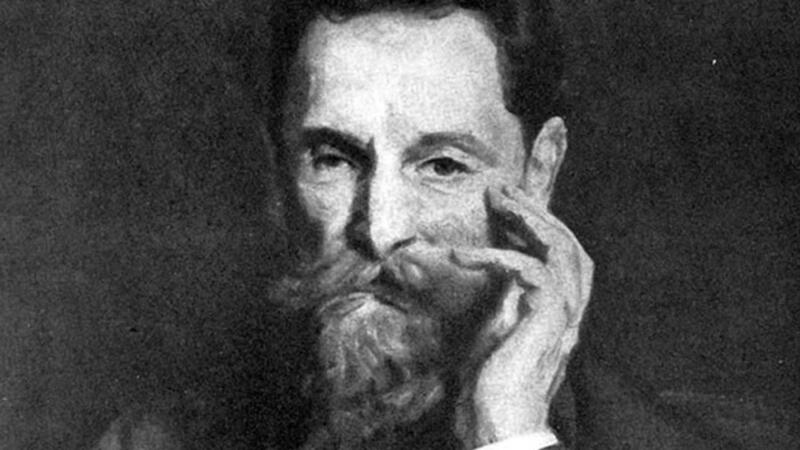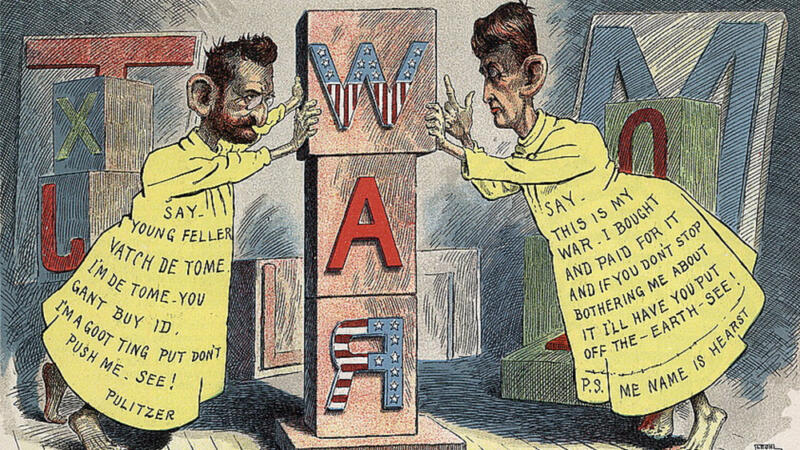Joseph Pulitzer: Publisher, Politician, Philanthropist
The Hungarian-born American businessman is remembered as a promoter of yellow journalism, a crusader against corruption and big business, and a pioneering crowdfunder for the Statue of Liberty.

Born on April 10, 1847 near Budapest, Hungary to an educated, well-to-do Jewish family, Joseph Pulitzer immigrated to the U.S. during the Civil War at the age of 17. After landing first in Boston in 1864, he moved quickly to New York, where he served on the Union Army’s 1st New York Lincoln Cavalry, in a predominantly German-speaking regiment. He spoke three languages (German, Hungarian, and French), learning English only after the war was over.
Pulitzer eventually landed in St. Louis, Missouri and got a job as a reporter for the German-based newspaper, Westliche Post, working 16-hour days and given the moniker "Joey the Jew." A few years later, at the age of 25, he became the paper's managing editor and held a stake in the company. In 1867 he became an American citizen. Pulitzer had a penchant for politics and joined the Republican Party in the late 1860s. However, his love affair with the party was brief after seeing its rampant corruption, and a few years later he became a Democrat. Two decades later he would serve as a Democratic congressman in New York.

After selling his stake in Westliche Post, he purchased two local papers in 1879, which he merged to become the St. Louis Post-Dispatch. His investments made him quite wealthy and four years later, he bought the financially distressed New York World (aka The World) and completely transformed it by focusing on sensational stories—from human interest to crime to scandal. His readership exploded, making The World the most read paper in the country. Known for promoting yellow journalism (sensationalist reporting that offers little or no research), Pulitzer would form a famous arch rivalry with newspaper publisher William Randolph Hearst and gain attention for hiring star investigative journalist, and round-the-world record-breaker, Nellie Bly.
In 1884 Pulitzer rescued the Statue of Liberty from being transplanted to another city when he urged his World readers to donate money to help build its pedestal. Within six months, he raised far more than he needed—$100K—and as thanks, printed every donor's name in the paper.

One of the most famous instances of Pulitzer's crusades against corruption was in 1909 when The World published a story about a $40 million fraudulent payment the United States made to the French Panama Canal Company. President Teddy Roosevelt and J.P. Morgan sued him for libel, but Pulitzer didn't back down. Eventually, the courts threw the case out, giving a significant victory to Pulitzer and championing freedom of the press.
Despite Pulitzer breaking new ground with his journalistic and business endeavors, by 1890 his health was in decline. At 43, he was not only virtually blind, but he also developed an extreme sensitivity to noise and suffered from severe depression. He left the newsroom for good and stepped down from being The World's editor, spending his time traveling around the world in search of cures. Finding no success, Pulitzer spent the last 20 years of his life living in soundproofed "vaults" aboard his yacht and his various vacation homes. Still, he kept close supervision on the editorial and business direction of his newspapers and even created an extensive code system to safeguard his communications.
Pulitzer established the Pulitzer Prizes, which recognized exceptional American artists and journalists. He later founded the Columbia School of Journalism.
On October 29, 1911, at the age of 64 Pulitzer died, leaving behind his wife and five children.
